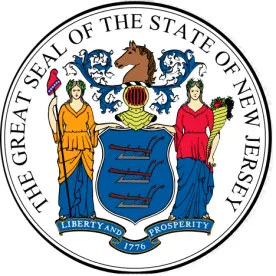In the wake of the #MeToo movement, a number of states are considering legislation that would limit an employer’s ability to use non-disclosure agreements (“NDAs”) when settling sexual harassment claims. New York was the first state to enact such legislation, which was passed as part of a wide-ranging budget bill that takes effect July 11, 2018. New York’s law bans non-disclosure provisions in settlements of claims involving sexual harassment allegations, unless confidentiality is the “complainant’s preference,” provided some onerous procedures are complied with. Washington State passed a similar law. Arizona, California, and Pennsylvania are also considering legislation to restrict the use of NDAs.
New Jersey is not only addressing NDAs for harassment, but has taken the nation’s first step towards enacting legislation that not only prohibits non-disclosure provisions, but also seeks to ban waivers of ANY discrimination, harassment or retaliation claim under New Jersey’s Law Against Discrimination. That warrants repeating: Section 1(a) of S-121 provides that “a provision in any employment contract that waives any substantive or procedural right or remedy relating to a claim of discrimination, retaliation, or harassment shall be deemed against public policy and unenforceable.” The bill does not define “employment contract,”, and that lack of definition is unfortunate. Some plaintiff lawyers may well argue that the term “employment contract” should include severance and separation agreements, the net effect of which would be that no employment claim can ever be settled with finality by private agreement. We think that some language within the NDA prohibition that addresses “employment contract or agreement” strongly suggests that a settlement or severance agreement is not an employment contract, but it may take some litigation for that issue to be finally resolved.
S-121 was passed by the New Jersey Senate on June 7, 2018, by a margin of 34-1. It now goes to the state Assembly, and may be voted on before the summer recess. If passed by the Assembly, the legislation will be presented to Governor Phil Murphy for signature. The ambiguity discussed above could be eliminated by inserting the single word, “prospective” after the word “waives” in line one of Section 1(a), but given the fast track this law appears to be on, that solution may not be forthcoming before this bill becomes law.
Putting aside that proposed ban on waivers of discrimination, harassment and retaliation claims, a comparison of New Jersey’s S-121 provisions to New York’s recent law reveals that the proposed New Jersey law is much broader. First, the New York law only prevents the use of NDAs with regards to claims of sexual harassment. S-121 would ban NDAs relating to any claim of harassment, discrimination or retaliation. Second, under the New York law, the employee has 21 days to consider whether to agree to non-disclosure provisions, and then 7 days to revoke that agreement. After the revocation period expires, the non-disclosure provisions are generally binding on the employee. However, S-121 provides that even if the employee agrees to the NDA, the NDA is unenforceable if the employee later decides (e.g. after collecting the settlement proceeds) to publicly disclose details of the claim. Third, the New York law may be read to apply only to settlement agreements, or agreements to resolve an asserted claim, but not to a standard severance agreement covering a scenario where no claim has been made. The New Jersey bill is more expansive and applies to “a provision in any employment contract or agreement.” The only limitation in S-121 is that the proposed law would not apply to the terms of any collective bargaining agreement.
Proponents of S-121 contend that the new law would help prevent recidivist sexual harassment, and that, as a matter of public policy, victims of harassment should not be precluded from speaking about their experience. Opponents argue that the legislation would prevent parties from bargaining for confidentiality, which is often of high-value to employers who wish to avoid expensive litigation even if the claim of harassment is meritless, and are willing to pay settlements in exchange for waivers and non-disclosure provisions that provide finality. If enacted as written, S-121 will likely lessen the value of such settlements. Opponents also point out that often it is the victim of harassment who wishes to keep the matter confidential and are willing to waive claims for the benefit of early resolution. However, by disincentivizing employers to settle, individuals may be less likely to come forward knowing that they are likely facing public and protracted litigation as these cases take years to reach the trial stage.
If passed, the bill, even with some modification, will have serious implications for New Jersey employers on many fronts. Employers will need to review severance agreements and policies, as well as arbitration agreements. They will also need to re-evaluate the amount of consideration paid in exchange for a standard release and confidentiality provisions.
We will continue to report on the proposed law as it moves through the legislative process. The bill comes on the heels of passage of New Jersey’s Diane B. Allen Equal Pay Act, considered one of the most expansive equal pay laws in the country.




 />i
/>i

